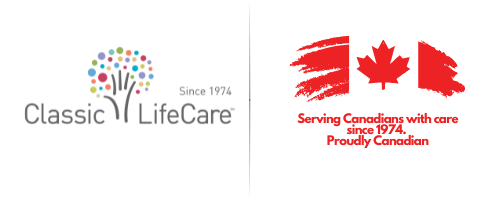Ancy Becomes an LPN in Canada

We catch up with Calgary employee Ancy about her journey to becoming an LPN in Canada.
How long were you a Health Care Worker?
I joined Classic LifeCare in November 2016, one week after arriving in Canada from India. I worked 18 months in total.
How long have you been working towards becoming an LPN in Canada?
I came here to Canada to become a Registered Nurse. I was an RN in India. I understood that I had to go through tedious procedures to get my license here in Canada. I’ve applied for both LPN and RN. It takes 2-3 years to complete my RN licensing procedure. So, I started to work as a Health Care Worker at Classic LifeCare while I prepared to achieve my goal.
Why do you want to be an LPN in Canada and work in rehab?
The practice which I got at Classic LifeCare encouraged me to work in rehab. Now, I am an LPN working in a disability centre in Alberta. When I was with Classic LifeCare, I was working with clients with dementia and spinal cord injury. I got to learn about the treatment, complications, and how to deal with complications. For example, autonomous dysreflexia is a life threatening complication of long-term quadriplegia. You should be well experienced to detect the stimulus and stop them to prevent further complications, such as hypertension.
Now, I can confidently say that I could detect the precursors of these complications and I can manage and care for my clients without putting their lives in danger. Besides the emergency care, I learned ongoing management and assistive therapies such as catheterization, bladder irrigation, medication, catheter care, muscle stimulation, active and passive exercises and the use of mechanical lifts. I learned well through my practice. I got many opportunities to be with my clients when they got admitted in VGH, where I was exposed to many procedures. The nurses in VGH taught me many things during my stay. I got all theoretical knowledge and lab experience from my School Omni College Richmond, but I got to practice everything through my Health Care Worker position at Classic LifeCare.
How did working at Classic LifeCare help you prepare for your LPN role?
I joined Classic LifeCare in November 2016 and I got the training through Classic for spinal cord injury care. I started to work for a client with a spinal cord injury. I also did some online courses through the Classic LifeCare Academy, like Diabetes Care and Dementia Care which helped me while I was going to school for my licensing exam studies. These courses and training helped me a lot to improve my academics in school.
Is there a good memory that stands out working with our clients?
One of my clients at Classic LifeCare was admitted to VGH for a surgery. I got to be there after his surgery during his recovery. As his recovery plan was made by the RN and doctor, they visited him one day when I was with him. I was with him throughout the assessment. The occupational therapist and physiotherapist came in and started to assess his movement out of the bed and I was assisting them. I got to learn a lot about post surgery care on that day, which I knew theoretically but I witnessed the Canadian standards of post operative care on that day. And the health team involved me as well in their discussions. I learned about patient-centred care and how the Canadian health system works from the admission to discharge of a patient.
How did working in the field help with your studies?
I studied at Omni college for my post graduate diploma in Canadian nursing review, where I got excellent training for my license exams. Interestingly, I got practical experience with the Canadian health system and client-centred care through Classic LifeCare. This helped me to score well in my studies, especially for my presentations and assignments. Surprisingly, I got spinal cord injury as my presentation topic in school. As I had already had experience with that through Classic LifeCare, I performed well in my school presentation, scoring 95%. Even now whenever my professor meets me, she talks about my presentation.
How has your experience so far helped you better handle conflicts?
I learned that arguments are not a solution. In many circumstances, I tried to explain my part and I tried to keep calm. I have learned when I should talk and when I should maintain silence. This awareness helped maintain a tranquility in my working environment. In home health care, not only the client, but the client’s family belongs to the care team. Good therapeutic communication with the family is necessary to achieve the goal of care. Allowing family to involved in care, involving clients in planning care, explaining each and every procedure and its rationale to clients and families was important in handling any conflicts. Also, proper communication with the coordinators in terms of arriving or leaving late or any other concerns helped me to create a peaceful working environment.
When you’re not working, what do you like to do for fun?
I am a foodie. I would like to taste all cuisines, as Vancouver has amazing places to eat. During my leisure time I used to go out to taste different cuisines. I am also interested in craft works, so I make small crafts with paper and plastics and it decorates my room. I go swimming and to the library to read fiction to improve my language.
